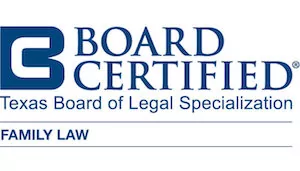
Petitions to relocate children away from parents present difficult choices for Texas family courts. These are often the most highly contested and controversial issues that Texas courts hear. Although courts encourage parents to reach an agreement regarding conservatorship, possession, and child support, these cases present competing interests and daunting challenges. Few things are more important than a consistent, stable, healthy relationship between parents and children. As such, those facing relocation issues after a separation or divorce should contact an experienced Sugar Land relocation attorney at the Ramos Law Group.
Child Custody Arrangements and Parental Relocation
Many custody agreements contain child relocation terms, as it is not uncommon for individuals to make moves as they experience financial, employment, family, and lifecycle changes. However, whether a parent can relocate with their child largely depends on the type of custody arrangement between the parties.
There are three types of conservatorship arrangements in Texas:
- Joint managing,
- Sole managing, and
- Possessory.
Texas courts typically favor joint managing conservatorships. Under this arrangement, parents share decision-making responsibilities about most important issues. However, under this framework, one parent (the custodial parent) usually has the exclusive decision-making power to determine where the child lives (usually within a limited geographic area). In some cases, neither parent will have the exclusive right to decide where the child lives. The child’s primary residence might be restricted to a specific geographic area, like a county or school zone.
Reasons for Parental Relocation
Both non-custodial and custodial parents may need to move for myriad reasons, including work-related opportunities, economic necessity, and remarriage.
Custodial Parent Relocation in Texas
Custodial parent relocation refers to situations when the parent with primary wants to make a long-distance move with their child. There are various reasons a parent may want to move, such as the following:
- Marriage,
- Pursuing a job opportunity,
- Better school district for their children, or
- Be closer to family and friends.
Although individuals are entitled to move for any number of reasons, a parent’s motivation for wanting to relocate with their children is a critical inquiry when courts hear matters involving child relocation in Texas.
Non-custodial Parental Relocation
When a non-custodial parent wants to move, they will generally still have most rights and responsibilities associated with their custody arrangement. However, the non-custodial parent may need to modify their visitation schedule in these cases.
Relocation Considerations
Studies suggest that following divorce or separation, some children experience additional hardships because of the relocation of their parents. Specifically, researchers have found that relocation that separates the parents’ homes by an hour’s driving distance substantially interferes with the child’s parental relationship.
Given these and other findings, courts tend to resolve disputes by considering the “best interests of the child.” While this is a seemingly subjective and nebulous standard, courts tend to look at certain factors when determining whether to permit a parent to relocate with their child. Some factors courts consider in Texas relocation cases include the following:
- Existing conservatorship arrangement;
- The existing relationship between the child and non-custodial parent;
- Educational, health, and recreational opportunities the move can provide to the child;
- Child’s age;
- Whether the move will disrupt the meaningful relationship with family or the non-custodial parent;
- The relocating parent’s ability to care for their child in the new location; and
- Whether parental cooperation will continue or be disrupted.
In some situations involving older children, the court will permit the child to present their opinions about the relocation.
If a court determines that the relocation is not in the child’s best interest, they may prevent the custodial parent from moving with the child. While the court cannot prevent the custodial parent from moving, they can change custody to the noncustodial parent so the child can stay where they are.
How to Request or Contest a Parental Relocation
Parents who want to move away with their child generally have two options:
- Reaching an agreement with the other parent, or
- Court intervention.
In either case, it is crucial that parents speak with an attorney to ensure that they have addressed all potential issues.
Relocation Agreements
A parent who wishes to move with their child can reach an agreement with the other parent. However, even if the other parent agrees to the move, there are many issues that the court must address, such as the following:
- Child support,
- Visitation, and
- Travel schedules.
If the other parent does not consent to the move, the relocating parent must ask the court for permission.
Petition for Relocation
Parents who want to relocate with their child may need to file a petition to modify with the applicable Texas family court. It is important to note that even if the parents’ custody agreement does not contain a geographic restriction, the moving parent must still obtain permission from the Texas court.
What To Expect at Child Relocation Hearings
If a relocation dispute arises, the court will schedule a hearing. Texas custody modification and relocation hearings are typically open to the public and occur online or in a courtroom. The parents are sworn in as witnesses, and the parent who petitioned for the change (or their attorney), has the first opportunity to speak, followed by the other parent or that parent’s attorney.
The moving parent must present evidence that a “material and substantial change in circumstances” warrant the move and that the move is in the best interests of the child. The court will evaluate the factors relevant to assessing the child’s best interests when making their decision. However, if the court finds that the custodial parent is trying to hinder or deny the non-custodial parent’s access to the child, the court will not grant the relocation petition.
Speak with an Attorney for Relocation in Sugar Land, TX
Parents contemplating moving, dealing with a co-parent relocating, or experiencing any other pressing family law issue should contact a Sugar Land relocation lawyer at the Ramos Law Group. We protect the things that matter most in our client’s lives. Whether you’re looking to relocate or prevent your former spouse from relocating, we can help. To learn more, and to speak with a Sugar Land relocation attorney today, call 713-597-7274 to schedule an initial consultation. You can also connect with us through our secure online contact form.










